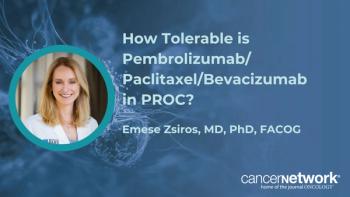
Long-Term Insulin Analog Use Linked With Increased Breast Cancer Risk
Long-term use of the long-acting insulin analog glargine is associated with an increased risk of breast cancer in women with type 2 diabetes, according to a new population-based cohort study.
Long-term use of the long-acting insulin analog glargine is associated with an increased risk of breast cancer in women with type 2 diabetes, according to a new population-based cohort study. The analysis, which was
“Experimental studies have shown that long-acting insulin analogs have stronger binding affinities to the insulin receptor family; this is a proposed mechanism for the increased cellular proliferation and inhibition of apoptosis observed primarily with breast cancer cells,” wrote study authors led by Samy Suissa, PhD, of Jewish General Hospital in Montreal. Observational studies on the association between the analogs and breast cancer have had conflicting results, likely due to insufficient duration of follow-up.
The new study included 22,395 women aged 40 years or older who received insulin treatment between 2002 and 2012, and were followed for up to 12 years. There were 321 incident breast cancer cases during the follow-up period, for an incidence rate of 3.3 per 1,000 person-years.
Among the full cohort, there were 9,575 users of glargine, 3,271 of detemir, and 9,549 of NPH, and these groups had 176, 37, and 108 breast cancer cases, respectively. Compared with the NPH users, women who received glargine had an adjusted hazard ratio (HR) for breast cancer of 1.44 (95% CI, 1.11–1.85); the authors noted that the risk appeared to increase beginning 5 years after glargine initiation, and after more than 30 glargine prescriptions. The detemir users had an HR of 1.17 (95% CI, 0.77–1.77).
The increase in risk was limited to women who were prior insulin users, with an HR of 1.53 (95% CI, 1.10–2.12); those who were new users did not see a significant increase in risk, with an HR of 1.18 (95% CI, 0.77–1.81), but there were fewer patients in this group, which may limit the result.
“Despite these findings, the benefits and risks of insulin glargine must be considered by drug regulatory agencies before any changes to clinical practice can be made,” the authors wrote. Further study is still needed specifically on detemir, given that it has been used by fewer women and for a shorter period of time than glargine.
Newsletter
Stay up to date on recent advances in the multidisciplinary approach to cancer.










































